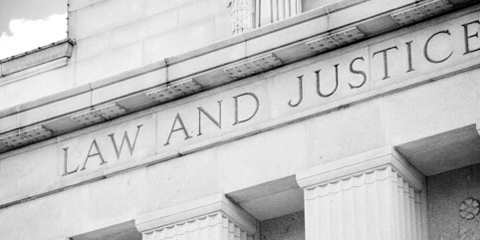私力救济的英文译法
翻译一本法律学术著作时,遇到了私力救济一词。为准确理解这一词的意思,笔者进行了百度搜索,搜索结果如下:私力救济(private remedy)是指权利主体在法律允许的范围内,依靠自身的实力,通过实施自卫行为或者自助行为来救济自己被侵害的民事权利。百度百科及MBA智库百科中都将其对应的英文译为“private remedy”。咋一看是完全对应的,但经验证,Private remedy与私力救济的意思却是存在一定差异的。
Upcounsel网站对Private remedy的解释如下:
Private remedies are, 1, By the act of the party, or by legal proceedings to prevent the commission or repetition of an injury, or to remove it; or, 2. They are to recover compensation for the injury which has been committed.
https://www.upcounsel.com/legal-def-remedies-remedy
其大概意思是,Private remedies指的是通过一方的行动或法律诉讼阻止伤害的发生或重复发生;或就已经存在的伤害索取赔偿。
而由上文可知,私力救济是指权利主体在法律允许的范围内,依靠自身的实力,通过实施自卫行为或者自助行为来救济自己被侵害的民事权利。其权利主体为私人,且并未依靠诉讼。因此可知,private remedy和私力救济这一词并不完全对应。
于是,笔者又在法律专业词典元照英美法词典中进行了搜索,搜索结果如下:
元照英美法词典:
self-help
自助;自力救济;私力救济
指不通过正常的法律程序而依靠自己的行为矫正被发现的不法行为。在英国,自力救济包括自卫〔self-defense〕、扣留牲畜要求赔偿损失〔distress damage feasant〕、排除侵扰〔abatement of nuisance〕和逮捕罪犯等措施。美国《统一商法典》〔U.C.C.〕和其他的制定法,也允许在不干扰和平的条件下实施自力救济,如实施占有。又称「self-redress」或「extrajudicial enforcement」。
同时又在谷歌中对这一词进行了验证:
Self-help, in the sense of a legal doctrine, refers to individuals' implementation of their rights without resorting to legal writ or consultation of higher authority, as where a financial institution repossesses a car on which they hold both the title and a defaulted note. Individuals resort to self-help when they retrieve property found under the unauthorized control of another person, or simply abate nuisances (as by using sandbags and ditches to protect land from being flooded). A self-help eviction refers to a commercial landlord's common law right to use self-help to reenter his or her property peaceably in order to evict a defaulting tenant or other person with no right of possession
上文粗体字的大概意思指的是self-help指个体不通过诉诸法律或与上级进行磋商而寻求行使自己权利的行为。由此可见,其与“私力救济”的含义基本是对应的。
因此,将“私力救济”一词译为“self-help”更为准确。




